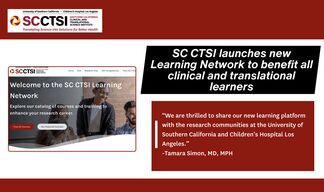Answering Questions that Start in the Operating Room
The Rise of Clinical and Translational Science in Surgery at USC
When Vaughn Starnes, MD, was named chairman of the Department of Surgery at the Keck School of Medicine of USC in December 2008, his top priority was to transform a department long recognized for its excellence in the operating room into one equally regarded for its leadership in the research lab.
The latest step in that evolution is a unique partnership between the Department of Surgery and the Southern California Clinical and Translational Science Institute (SC CTSI), in which the department is providing the funding for one of its surgeons to take part in SC CTSI's clinical researcher education curriculum, known by its National Institutes of Health designation, KL2.
"I want the Department of Surgery at USC to be known as one of the best departments in the country, but you can't do that just by being great clinicians, you have to have an academic profile, as well," said Starnes, a noted cardio-thoracic surgeon. "Our vision is to tackle an obvious clinical problem, take it to the bench and work on the science to solve it, and bring it to the clinical areas."
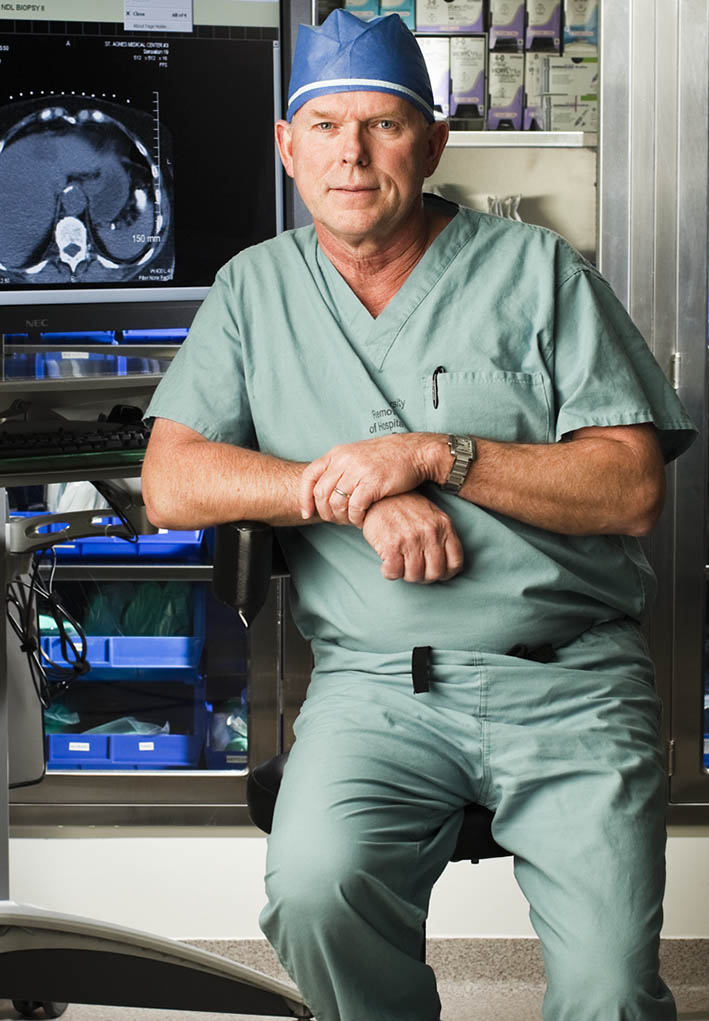
Vaughn Starnes, MD
Based at USC and 62 other CTSA institutions, KL2 programs provide coursework, mentorship and other services designed to help researchers succeed in careers as clinical and translational investigators.
Each year the SC CTSI funds early-career faculty and fellows from departments throughout USC to attend the three-year KL2 program. But the SC CTSI can only fund up to four scholars per year and, as a result, must turn away qualified applicants.
Partnering to increase the number of scholars at USC
SC CTSI leadership proposed the partnership with the Department of Surgery to boost the number of rising researchers who can benefit from KL2.
"Our KL2 program has a lot to offer young translational researchers. We have been looking for creative ways to expand the program's reach beyond the small number of trainees that we support directly," said Thomas Buchanan, MD, director of SC CTSI.
“The decision by Dr. Starnes to protect time for one of his junior faculty members to participate in the KL2 program is a great model that we hope other departments and schools will use in the future.”
The Department of Surgery was eager to make the partnership work, said Starnes. In the nearly five years since he was named chairman, Starnes has recruited several new surgical faculty members with strong research backgrounds and goals.
The first researcher to be supported 100% by her own department in KL2 scholarship is surgeon Julie E. Lang, MD, associate professor of surgery at the Keck School of Medicine, and a member of the Department of Surgery faculty.
To attract Lang and other research-oriented faculty members, Starnes and the Department of Surgery had to make concrete changes to protect, or guarantee, that 65 to 75 percent of their time would be devoted to research. Protecting that much time, however, is unusual in academic surgery.
"Traditionally, there wasn't enough money within the department to support clinical investigation," said Starnes. "Surgeons had to see enough patients to support their salary and their work, and that didn't leave much time for extensive research projects."
But Starnes said his department would continue to work with SC CTSI to help support the work of rising researchers like Lang, both through grants and SC CTSI's various educational and professional resources.
Using circulating tumor cells to assess a patient’s response to therapy in real time
Julie Lang is currently also principal investigator of the Breast Surgical Oncology Translational Research Laboratory at the Norris Cancer Center, which also helps support her work.
Her research includes the study of gene expression in circulating breast cancer cells, which are shed by tumors and travel through the bloodstream. Her lab collects the cells from research participants and uses sophisticated RNA sequencing techniques to determine what the circulating cells can reveal about their tumors of origin.
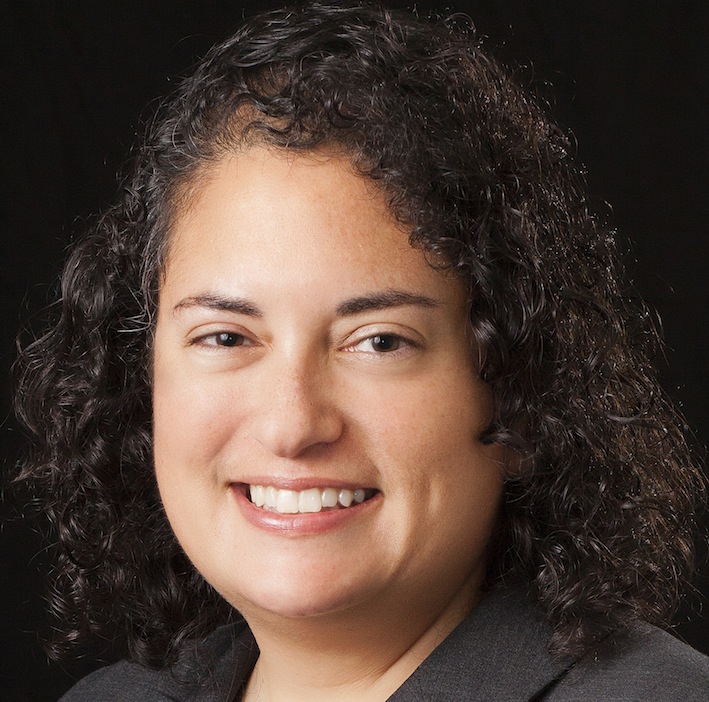
Julie Lang, MD
One of Lang's projects is seeking to determine if capturing circulating tumor cells in the blood of stage four patients – those whose cancer has metastasized widely – can replace surgical biopsies when tumor location makes biopsies unpleasant or impossible.
"The investigations are studying whether tumor cell DNA can be predictive of therapy," said Lang. "The hope is to use circulating tumor cell biology to assess a patient's response to therapy in real time."
Lang came to USC with a strong background in clinical surgery and bench science but said the KL2 program has provided valuable training in statistical methods for clinical research.
"Another one of the most important skills in the KL2 training is grantsmanship – understanding how to convey the objectives of our research to reviewers who may specialize in different areas," said Lang.
Understanding chronic swelling of arms after breast cancer surgery
Although Lang is the first KL2 scholar to be supported by her home department, other USC surgeons have already entered or completed the KL2 program under SC CTSI sponsorship, including researchers Alex Wong, MD, also of the Department of Surgery, and Gabriel Zada, MD, and William Mack, MD, both of the Department of Neurological Surgery.
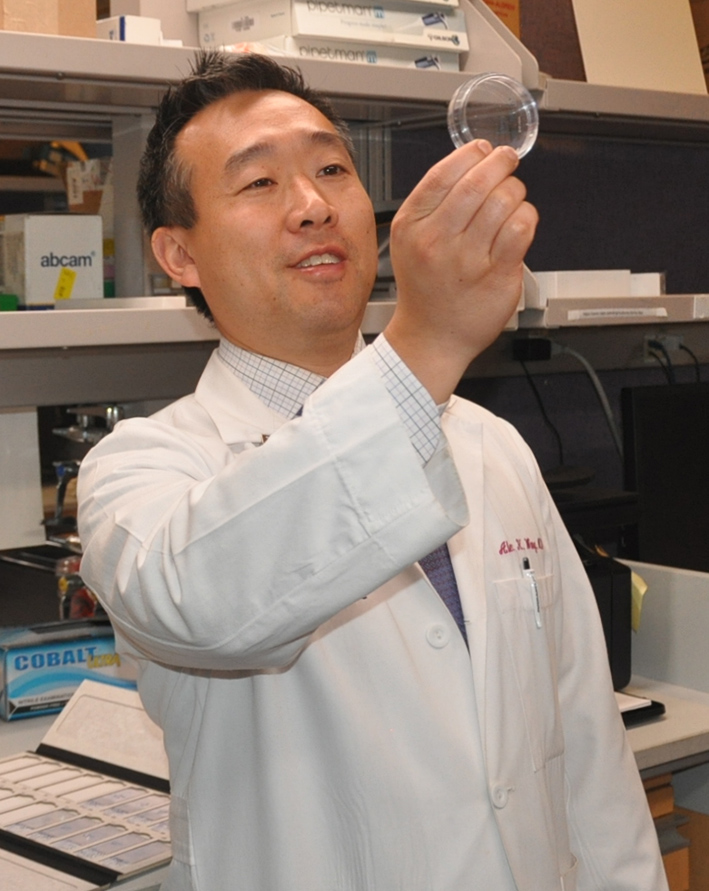
Alex Wong, MD
"Reconstructive surgery is obviously a full time job, but my division and department both saw I had the desire and the skills to pursue research, and the SC CTSI made it possible to carve out the time I needed," said Wong, a plastic surgeon studying lymphedema, the chronic swelling of the arms that often troubles patients who have had breast cancer surgery. He is investigating a molecule called 9-cis-retanoic acid, a newly discovered therapy designed to regenerate lymphatic vessels following surgery.
“The KL2 program provided a formal structure and dedicated time that I could never have created on my own. It has allowed me to connect with remarkable mentors and learn about study design, biostatistics and other areas that have made me much more capable as a researcher," said Wong.
Determining genetic factors of tumor invasiveness
Neurosurgeon and assistant professor Gabriel Zada, MD, is in his second year of KL2 scholarship. His research focuses on pituitary adenomas, a tumor of the pituitary gland, and on the genetic factors that determine tumor invasiveness.
Zada sees research as a way to answer questions that start in the operating room. "As surgeons, we interact with the body in a unique way and have the opportunity to see disease, such as tumors, in the body and to develop a grasp of the clinical barriers and issues," he said.
"The KL2 program has introduced me to the whole language of clinical research," Zada said. "So much of what we do is translational and multidisciplinary, and the more you can share that language with people from other specialties, the better your research will be."
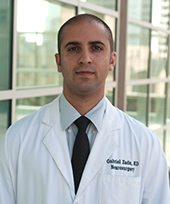
Gabriel Zada, MD
Finding ways to get the maximum number of scholars enrolled
Jonathan Samet, MD, MS, director of the SC CTSI Education, Career Development, and Ethics program, which runs the KL2 program, says SC CTSI wants to work with as many departments as possible to expand the numbers of translational researchers.
"The KL2 was created to enhance and accelerate the professional development of new clinical and translational researchers, so it's critical for USC that we find ways to get the maximum number of scholars enrolled," said Samet.
Starnes urges other scientific and clinical departments to consider partnering with SC CTSI as part of their overall research strategy.
"By sponsoring a KL2 scholar, we may be an exception now, but I don't think we should be," said Starnes. "Not to take the fullest advantage of the incredible resource of the SC CTSI would be a lost opportunity."
Learn more about the SC CTSI KL2 scholar program
SC CTSI is part of the 62-member of the Clinical and Translational Science Awards (CTSA) network funded through the National Center for Advancing Translational Sciences (NCATS) at the NIH (Grant Number UL1TR000130). Under the mandate of “Translating Science into Solutions for Better Health,” SC CTSI provides a wide range of services, funding, and education for researchers and promotes online collaboration tools such as USC Profiles.



